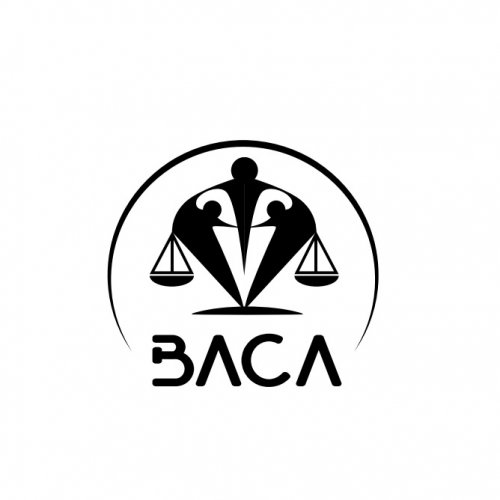Best Education Law Lawyers in South Sudan
Share your needs with us, get contacted by law firms.
Free. Takes 2 min.
Or refine your search by selecting a city:
List of the best lawyers in South Sudan
About Education Law in South Sudan
Education Law in South Sudan is an evolving legal domain focused on governing educational institutions, the rights of educators and students, and the conditions within learning environments. After gaining independence in 2011, South Sudan has been working towards building a comprehensive educational framework that upholds the right to education for all, as enshrined in its constitution and various international treaties. The government is continually enhancing its education laws to ensure equitable access and quality education for its citizens, addressing challenges such as infrastructure, teacher training, and educational resources.
Why You May Need a Lawyer
Individuals and organizations may require legal assistance in Education Law for various reasons, including but not limited to:
- Disputes over school admissions or expulsions.
- Cases of discrimination or violation of students' rights.
- Contractual issues involving schools and educational personnel.
- Compliance with regulations on new educational initiatives or curriculum changes.
- Resolution of employment issues faced by teachers and staff.
- Advisory roles on charitable organizations involved in educational projects.
Local Laws Overview
Key aspects of Education Law in South Sudan include:
- The Right to Education: Enshrined in the Transitional Constitution of the Republic of South Sudan, ensuring basic education is free and accessible to all citizens.
- Education Act: A legislative framework that outlines the management of educational institutions, responsibilities of teachers, and the rights of students and families in the education system.
- Regulatory Bodies: The Ministry of General Education and Instruction oversees educational standards, compliance, and reforms.
- Inclusive Education Policies: Laws addressing the needs of marginalized groups, including support for girls' education and education for individuals with disabilities.
Frequently Asked Questions
What is the minimum age for compulsory education in South Sudan?
The compulsory education age begins at 6 years old and continues until the age of 13, covering the full primary education cycle.
Are there legal protections against discrimination in schools?
Yes, the Education Act includes provisions to protect students from discrimination based on gender, disability, religion, or ethnicity.
What are the legal requirements for establishing a private school?
Private schools must comply with registration requirements set by the Ministry of General Education and Instruction, including curriculum standards and teacher qualifications.
Can a student be expelled without parental notification and a proper hearing?
No, students are entitled to due process, including parental notification and a fair hearing before any expulsion is finalized.
What rights do teachers have under South Sudanese Education Law?
Teachers' rights include contractual employment terms, fair compensation, and the right to representation in disputes.
Is homeschooling legally recognized in South Sudan?
Homeschooling is not formally recognized in South Sudan; however, education reforms may address alternative education in the future.
What can I do if I believe a school is not complying with educational standards?
You can file a complaint with the Ministry of General Education and Instruction, which will investigate the matter and enforce compliance.
How are educational funds allocated and protected by law?
Funds are primarily allocated through government budgets, with legal oversight mechanisms in place to ensure their proper use and distribution.
What is the language of instruction in public schools?
The official languages of instruction are English, with mother tongue used for early-grade instruction.
Can international students attend South Sudanese schools?
Yes, but they must comply with immigration regulations and any specific school policies regarding foreign students.
Additional Resources
Consider reaching out to the following organizations and bodies for more information:
- Ministry of General Education and Instruction
- South Sudanese Education Committees and Councils
- UNICEF South Sudan
- Local NGOs focusing on education rights and advocacy
Next Steps
If you need legal assistance in Education Law, consider the following steps:
- Identify the specific issue or dispute requiring legal attention.
- Gather relevant documents and records related to your educational matter.
- Consult with a qualified lawyer specializing in Education Law for personalized advice.
- Explore mediation options if applicable, to resolve disputes out of court.
- Reach out to governmental bodies or advocacy groups for support and guidance.
Lawzana helps you find the best lawyers and law firms in South Sudan through a curated and pre-screened list of qualified legal professionals. Our platform offers rankings and detailed profiles of attorneys and law firms, allowing you to compare based on practice areas, including Education Law, experience, and client feedback.
Each profile includes a description of the firm's areas of practice, client reviews, team members and partners, year of establishment, spoken languages, office locations, contact information, social media presence, and any published articles or resources. Most firms on our platform speak English and are experienced in both local and international legal matters.
Get a quote from top-rated law firms in South Sudan — quickly, securely, and without unnecessary hassle.
Disclaimer:
The information provided on this page is for general informational purposes only and does not constitute legal advice. While we strive to ensure the accuracy and relevance of the content, legal information may change over time, and interpretations of the law can vary. You should always consult with a qualified legal professional for advice specific to your situation.
We disclaim all liability for actions taken or not taken based on the content of this page. If you believe any information is incorrect or outdated, please contact us, and we will review and update it where appropriate.
Browse education law law firms by city in South Sudan
Refine your search by selecting a city.








